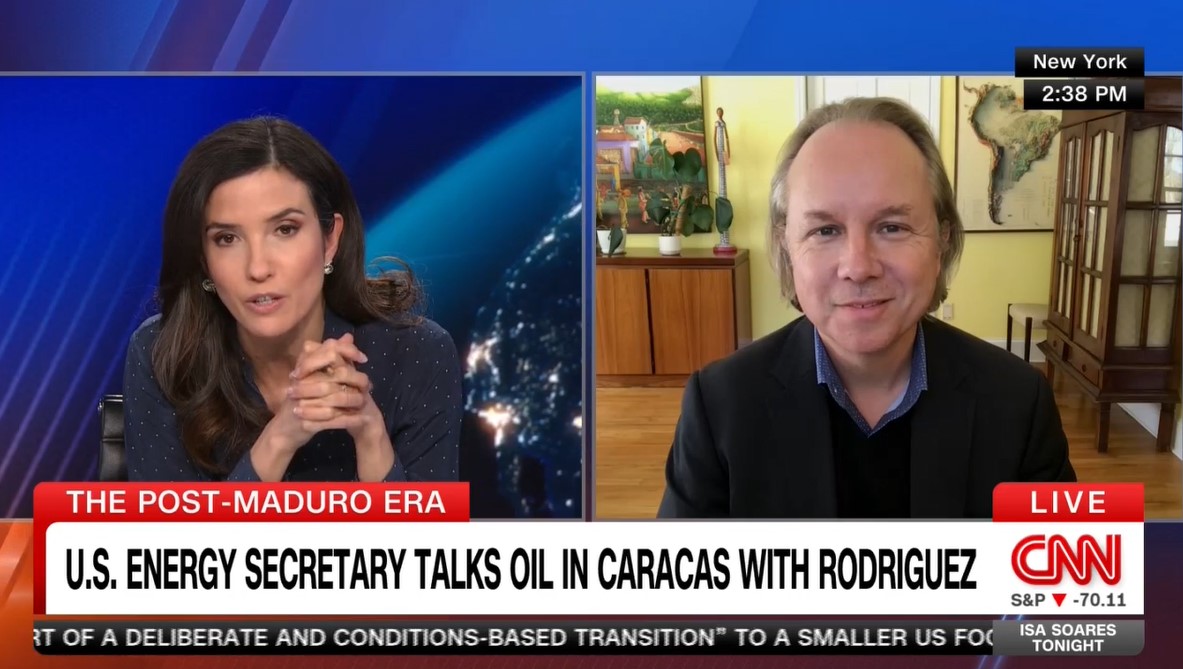FTA with the United States: For Colombia, This is Just the Beginning
FTA with the United States: For Colombia, This is Just the Beginning
In an op-ed for ElTiempo.com, COA's Eric Farnsworth argues that the recent implementation of the U.S.-Colombia free trade agreement is the beginning of what should be a broader strategy of commercial expansion within the region, and with Asia.
The May 15 entry into force of the U.S.-Colombia free-trade agreement (FTA) marked a significant accomplishment for both countries, but it is the beginning, not the end, of the effort to bring the benefits of open trade to Colombia and to position the country to compete effectively in the global economy.
For the United States, the FTA is important for both commercial and geopolitical reasons: it will boost U.S. exports to South America’s third-largest economy while strengthening an important strategic relationship. Without the FTA, U.S. producers would continue to lose market share, particularly in the agricultural sector, to Canada, Brazil, and even Argentina, despite a natural affinity among Colombians for U.S. products and business methods.
From the Colombian perspective, the agreement fits neatly into a strategy of improving investor confidence and attracting foreign direct investment. As Colombian Ambassador Gabriel Silva remarked Tuesday at the Council of the Americas in Washington, the FTA provides certainty for the business community that was not possible under previous trade provisions, as well as a framework to resolve issues as they may arise. For more than 20 years, Colombian exporters benefitted from unilateral trade preferences that required U.S. congressional reauthorization—an inherently uncertain process, as exemplified by the program’s expiration last year. Instead, the FTA will provide a permanent framework for increased trade and, in Ambassador Silva’s words, a powerful catalyst for investment in Colombia’s infrastructure and other pressing needs.
Even as the Santos administration has worked to diversify trade relations, the deal with Colombia’s largest importer and export market also represents tangible recognition of the country’s broader successes. As a recent Financial Times report put it, Colombia has transformed from battleground to bustling investor destination.
Colombia’s broad commitment to free trade is admirable, particularly in the context of a recent South American trend toward protectionism. In addition to the FTA, Colombia has joined Chile, Mexico, and Peru in the Alliance of the Pacific, an ambitious and strategic effort to deepen integration among the region’s most open economies. All four nations are scheduled shortly to complete a timetable for lifting barriers on the movement of goods and services among themselves.
Yet trade expansion leading to economic growth is much like riding a bicycle: if you stop pedaling, you fall off. Even as Colombia rightfully celebrates implementation of the FTA with the United States and begins the process to ensure its full potential, great opportunity awaits for trade and investment expansion in the Pacific Basin. Indeed, President Santos’s recent travel to China and Singapore demonstrated Colombia’s appropriate ambition to become an emerging Pacific market and global player.
Entrance into the ongoing negotiations to establish the Trans-Pacific Partnership (TPP) would be an obvious next step, currently the most promising opportunity to build broader hemispheric and Asi-Pacific trade expansion with a gold-standard approach. Along with the addition of Mexico and Canada, Colombia would help balance the scales to ensure that the TPP is a true pan-Pacific agreement, rather than an agreement that is primarily focused on Asia. Further on, Colombia’s participation in the TPP could also create a critical mass encouraging other nations in the region to come to the table to build a broader trade-integration agenda. Of course, on the financial side, full Colombia participation in the G20 as well as the OECD would be an important recognition of the progress that Colombia has made both economically and politically, while also ensuring that Colombia’s economic orthodoxy and outstanding example as a free trade nation can best serve the broader global community.
Entry into force of the U.S.-Colombia FTA is cause for celebration in both Washington and Bogotá. With the stability it provides, both countries can look toward exciting new commercial opportunities. More broadly, Colombia has bolstered its impressive role as a regional and global leader in keeping integration on track in the face of rising protectionism. Colombia’s future has never been so bright.
Eric Farnsworth is the vice president and Washington office head of the Americas Society/Council of the Americas.
Kezia McKeague, Director of Government Relations of the Council of the Americas, contributed to this article.








